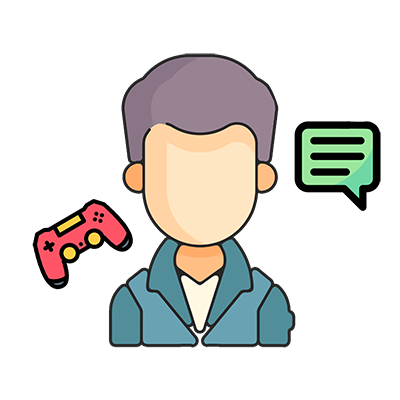VR Opportunities for People with Limited Vision
Virtual reality allows users to immerse themselves in amazing virtual worlds, but it is not just healthy individuals who can enjoy its benefits. VR also provides unique opportunities for people with limited vision, opening up new horizons and improving their lives.
What is VR and Its Key Principles
Virtual reality creates the sensation of immersion and interaction with a virtual world using graphics, audio, and sometimes tactile sensations (haptic devices) to generate a sense of presence in a different place.
VR enables users with limited vision to travel to various virtual locations and explore them without physical constraints.
Examples:
Visiting virtual museums and art galleries allows people to enjoy stunning works of art and explore them in detail.
Historical virtual tours can immerse users in the past, enabling them to explore pivotal moments, architectural wonders, and even participate in events such as the construction of the Great Wall of China or the foundation of ancient cities.
Learning and Practice
Education can be more challenging for individuals with limited vision, but VR technologies are now transforming education and learning process. Virtual educational applications provide interactive environments that greatly enhance the user’s ability to absorb information and develop new skills.
Examples:
Interactive educational materials allow students to engage with the learning content on a deeper level. They can “experience” historical events, study three-dimensional models, explore scientific concepts, and much more.
People with limited vision can explore the microscopic world of cells or safely witness great natural phenomena like a volcanic eruption through virtual reality.
Rehabilitation and Therapy
Virtual Rehabilitation
VR can be used in medical rehabilitation to restore vision and improve motor coordination. Specialized programs can be tailored to the patient’s individual needs, making this process more effective and stimulating.
Psychological Therapy
Limited vision can have a strong psychological impact on a person, including feelings of isolation and depression. For individuals, especially those who have faced trauma or excess stress, VR therapy can provide an opportunity to work on the psychological aspects of their condition and support them during the healing process.
Socialization and Interaction
Virtual Social Networks
One significant facet of the lives of people with limited vision is socialization and the need to connect with others. VR can significantly expand available options and help overcome physical barriers that may arise in the real world.
Access to Cultural Events
Thanks to VR, users can participate in cultural events such as concerts, exhibitions, and sport matches without the need to leave their homes. This opens up new opportunities for leading a culturally enriched life.
Conclusion
VR provides incredible opportunities for people with limited vision, allowing them to more easily enjoy entertainment, pursue education, go through rehabilitation and therapy, as well as socialize and interact with others. This technology has the potential to improve the quality of life and expand horizons for this audience, and its role in the everyday lives of such individuals will undoubtedly only continue to grow in the future.
